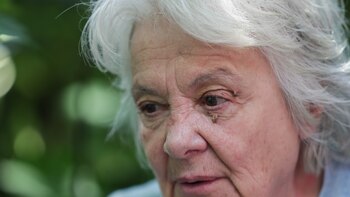
(Bloomberg) -- Deutsche Bank AG, TP ICAP Plc and two German lawyers are the targets of M.M. Warburg & Co.’s latest legal attempt to recoup the big tax bill it was ordered to pay over controversial Cum-Ex trades, people familiar with the matter said.
The lawsuit was filed at a court in Hamburg, where Warburg is based, according to the people, who declined to be identified because they weren’t authorized to speak about the case. The two attorneys targeted are Hanno Berger and a man who has come to be known as ‘Benjamin Frey,’ a fake name, as his identity can’t be disclosed under German law.
Warburg on Thursday said that it filed suits against people who initiated, handled and profited from deals for which the lender has paid an additional 111 million euros ($134 million) to the tax authorities. The bank didn’t name any people or companies it sued or how much it was seeking, but said its tax bill for deals from 2007 to 2011 has grown to 155 million euros.
Berger, who lives in Switzerland, said he hasn’t been informed of any action. Suing him would be “pretty frivolous,” he said, because he never gave Warburg any advice on dividend-arbitrage transactions. He only introduced the bank to a business opportunity but it declined to hire him, he said.
Read more: Lawyer to the Rich Made His Own $56 Million Windfall With Cum-Ex
A lawyer for Frey declined to comment, as did Deutsche Bank.
TP ICAP declined to comment on the Warburg suit. The company referred to an earlier statement saying that the Cum-Ex trades happened years before it acquired the voice broking business of ICAP in 2016 from NEX Group Ltd and that it sued NEX over the potential liability for these deals.
The Hamburg court declined to confirm the filing, saying its policy is to only disclose suits once the defendants have been served with the complaints.
In Cum-Ex deals, investors rapidly traded shares to earn duplicate tax refunds on dividend payments. The practice ended in Germany in 2012 when the nation revised its rules, but Cum-Ex schemes may have cost taxpayers more than 10 billion euros.
Warburg in September lost an initial lawsuit filed against Deutsche Bank in a Frankfurt court over Cum-Ex. That tribunal said that it might be possible for Warburg to force payment from ICAP, which sold the shares in the deals at issue. Warburg has appealed the Frankfurt ruling.
The transactions at issue in the new legal action were the center of the first Cum-Ex trial in Germany. That ended in March with the conviction of two former U.K. investment bankers, and the court in Bonn seizing 176 million euros from Warburg.
Read more: A Private Bank Survived the Nazis But Cum-Ex May Break It
The trial centered on more than 30 deals in which its managers were involved, according to findings in that case.
The Bonn court is currently hearing the country’s second Cum-Ex criminal case in a trial against a former Warburg manager over allegations he participated in a Cum-Ex tax scheme that lost the country 325.9 million euros. Three more Warburg employees have been charged over the issue.
(Updates with TP ICAP comment in 6th paragraph.)
Últimas Noticias
Debanhi Escobar: they secured the motel where she was found lifeless in a cistern

The oldest person in the world died at the age of 119

Macabre find in CDMX: they left a body bagged and tied in a taxi
The eagles of America will face Manchester City in a duel of legends. Here are the details

Why is it good to bring dogs out to know the world when they are puppies




